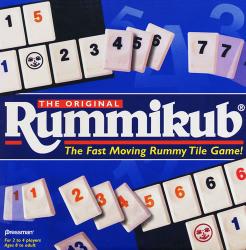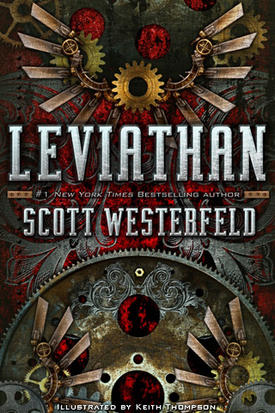I know this post is ahead of schedule, but if I waited until Wednesday to tell you why I love Bookshop Talk, you might miss their awesome book giveaway. There are a lot of book review sites out there, but this one has my undying adoration. Here's why:
Positive Reviews Only. I'm not interested in bad books. I want good things to read. Recommendations. Someone might argue that this lacks "balance," but the reasons why someone loved a book can tell me if I'm going to hate it or love it, too. Personally, I figure if I hate a book the best thing I can do is never mention it. I heard about The Hunger Games a dozen times before I picked the book up -- probably more than half of those mentions were negative. But the title lodged in my brain. My curiosity peaked. And I thank everyone who publicly derrided the book for spurring me towards it. I loved it.
Content Table. The end of every review contains a brief table outlining the language, violence, sensuality, and mature themes present in the book. I adore this. When I'm writing reviews, it's a wonderful safety net -- I don't have to spend the review giving caveats if the book isn't right for every audience. As a reader, it empowers me to better select my next read.
Nice People. The people who run Bookshop Talk are super nice. And they happily take reviews from anyone who has a book they want to gush about (guidelines are here).
Cool Contests. They're having another one, and the deadline's Wednesday! You can read about it here, but in short, if you write a reviews, you're entered to win any book on their site, or a book by any author they've interviewed on their site -- your pick. It's a long, long list. I first learned about Bookshop Talk during their last contest. I won a book. I've continued to submit reviews ever since.
The contest is open until 11:59 on November 30th. Head on over and check it out!
November 28, 2011
November 23, 2011
The Android's Dream and Rummikub: Book & Board Game Match-Up
The Book (by John Scalzi): A human diplomat creates an interstellar incident when he kills an alien diplomat in a most…unusual…way. To avoid war, Earth's government must find an equally unusual object: A type of sheep ("The Android's Dream"), used in the alien race's coronation ceremony.
To find the sheep, the government turns to Harry Creek, ex-cop, war hero and hacker extraordinaire, who with the help of Brian Javna, a childhood friend turned artificial intelligence, scours the earth looking for the rare creature. And they find it, in the unknowing form of Robin Baker, pet store owner, whose genes contain traces of the sheep DNA.
But there are others with plans for the sheep as well: Mercenaries employed by the military. Adherents of a secret religion based on the writings of a 21st century science fiction author. And alien races, eager to start a revolution on their home world and a war on Earth.
To keep our planet from being enslaved, Harry will have to pull off the greatest diplomatic coup in history, a grand gambit that will take him from the halls of power to the lava-strewn battlefields of alien worlds. There's only one chance to get it right, to save the life of Robin Baker -- and to protect the future of humanity. --Amazon Book Description
To find the sheep, the government turns to Harry Creek, ex-cop, war hero and hacker extraordinaire, who with the help of Brian Javna, a childhood friend turned artificial intelligence, scours the earth looking for the rare creature. And they find it, in the unknowing form of Robin Baker, pet store owner, whose genes contain traces of the sheep DNA.
But there are others with plans for the sheep as well: Mercenaries employed by the military. Adherents of a secret religion based on the writings of a 21st century science fiction author. And alien races, eager to start a revolution on their home world and a war on Earth.
To keep our planet from being enslaved, Harry will have to pull off the greatest diplomatic coup in history, a grand gambit that will take him from the halls of power to the lava-strewn battlefields of alien worlds. There's only one chance to get it right, to save the life of Robin Baker -- and to protect the future of humanity. --Amazon Book Description
The Game (published by numerous companies): Rummikub is played with a set of 106 elegant tiles that are as durable as they are easy to handle. Like Rummy, players build melds of run of the same colors - Red 7, Red 8 and Red 9 - or sets of the same numbers - Blue 8, Red 8 and Black 8. If you're looking for a fast action game where the outcome is undecided until the last play and has a never-ending variety of strategies and play situations, you'll love Rummikub! --Amazon Product Description
The book starts with the line: "Dirk Moeller didn’t know if he could fart his way into a major diplomatic incident. But he was ready to find out."
Anyone who's not laughing has probably already clicked away. We'll continue. The book reads like a spy thriller, with delightfully wry prose pulling us through twists in politics and gunshots. Of course, there's also abundant science fiction -- both innovative tidbits and imaginative play with the genre's history. Along with fascinating alien cultures. What I loved about this book was the reversals. At one moment, the good guys were impossibly stuck, then a lawyer or an AI does something clever. The bad guys retaliate by turning their sucess into a trap, and so on. The novel reads like a gigantic, ever-changing puzzle.
And "ever-changing puzzle" fits Rummikub perfectly. The rules are simple, but one tile can devastatingly change future moves. The sets are held in common and can be reorganized in any way, so long as all sets are legal when a player's turn ends. Usually playing a tile isn't as easy as adding it to the end of a run. Today, I only won a game because I saw a move rearranging some twenty pieces. I imagine most people reading this blog have played Rummikub, so I'll be short, but it's that brain-twisting puzzle-piecing that matches these two. In The Android's Dream, the final play is a delightfully ingenious one I didn't see coming.
As a side note, the content in this book is a notch up from what I usually blog about -- a good fistful of swearing, plus some things that are mentioned in exposition, but not dramatized. I don't want to give spoilers, but if you'd like more detail, feel free to contact me.
November 16, 2011
Snot & Stuff
My family hasn't been feeling great. Just in case the written word is contagious, I'm delaying today's post until next week. Instead, here's the first episode of the Standard Action web series. It's hilarious. In a very nerdy way. If D&D scares you, now's a good time to use expeditious retreat.
November 9, 2011
Ticket to Ride and Leviathan: Book and Board Game Match-Up
The Game (from Days of Wonder):With elegantly simple gameplay, Ticket to Ride can be learned in 3 minutes, while providing players with intense strategic and tactical decisions every turn. Players collect cards of various types of train cars they then use to claim railway routes in North America. The longer the routes, the more points they earn. Additional points come to those who fulfill Destination Tickets – goal cards that connect distant cities; and to the player who builds the longest continuous route.
The Book (by Scott Westerfeld): It is the cusp of World War I. The Austro-Hungarians and Germans have their Clankers, steam-driven iron machines loaded with guns and ammunition. The British Darwinists employ genetically fabricated animals as their weaponry. Their Leviathan is a whale airship, and the most masterful beast in the British fleet.
Trains and steampunk. I feel like I could end this post with those three words, but I'll elaborate. Ticket to Ride is one of those games I can't count how many times I've played. It's incredibly easy to learn, but still engaging to play, making it a all-around favorite. It works for families, for gaming groups, and for people who are wary of complicated games. Set-up is even easy.
Leviathan drips with that steampunk adventure feel, from the cover to the worldbuilding to the clothes. Simply put, it's fun.
Pacing makes these two similar. In Ticket to Ride, turns are short and fast. There's no long, torturous pause and someone completes their fifty-seventh action. One turn, one action. Turns whip around the table, which is part of the fun. This easy-to-learn game keeps me leaned over the board, mind racing along.
Leviathan, likewise, has tight, YA-pacing. Worldbuilding details are scattered in the text, never slowing it. Westerfeld unfold an adventure -- and he does it in a strange-but-nostalgic setting. Wherever the boring parts are, they're not in these books.
Trains and steampunk. Fast and fun.
November 2, 2011
World Fantasy Convention 2011
World Fantasy was different than other conventions or conferences I've been to. The panels here debated what the genre should be, not how to write it. Continuing those conversations outside the panels was part of the fun. Usually at conferences, I marathon through presentations, but here I took breaks -- both to talk to industry professionals I admire and get to know others.
I got to speak on the "Exploring the Americas" panel, probably because of my epigraphy experience. Someone asked for nonfiction suggestions for researching the Maya, so I'm listing them here. The first title, Reading the Maya Glyphs, I read as a teenager. I'd encourage anyone interested in researching to start there. It seems fitting to read what the Maya wrote about themselves, first.
Reading the Maya Glyphs, by Michael D. Coe and Mark Van Stone
Popol Vuh, translated by Allen Christensen (This excellent translation also contains extensive footnotes, which give insight into ancient, post-conquest, and modern Maya)
Chronicles of the Maya Kings and Queens, by Simon Martin and Nikolai Grube
The Maya, by Michael D. Coe
Michael D. Coe also has a book on the history of Maya decipherment, Breaking the Maya Code, and one with Rex Koontz on northern Mesoamerica, entitled Mexico. I've listed a lot of Coe's books because they're excellent and highly accessible to a non-academic audience. There are other books, of course, but these are a great starting point.
I didn't get to attend it, but I'm also looking forward to watching Moses Siregar's recording of the Founders of Steampunk panel.
I got to speak on the "Exploring the Americas" panel, probably because of my epigraphy experience. Someone asked for nonfiction suggestions for researching the Maya, so I'm listing them here. The first title, Reading the Maya Glyphs, I read as a teenager. I'd encourage anyone interested in researching to start there. It seems fitting to read what the Maya wrote about themselves, first.
Reading the Maya Glyphs, by Michael D. Coe and Mark Van Stone
Popol Vuh, translated by Allen Christensen (This excellent translation also contains extensive footnotes, which give insight into ancient, post-conquest, and modern Maya)
Chronicles of the Maya Kings and Queens, by Simon Martin and Nikolai Grube
The Maya, by Michael D. Coe
Michael D. Coe also has a book on the history of Maya decipherment, Breaking the Maya Code, and one with Rex Koontz on northern Mesoamerica, entitled Mexico. I've listed a lot of Coe's books because they're excellent and highly accessible to a non-academic audience. There are other books, of course, but these are a great starting point.
I didn't get to attend it, but I'm also looking forward to watching Moses Siregar's recording of the Founders of Steampunk panel.
Subscribe to:
Posts (Atom)




